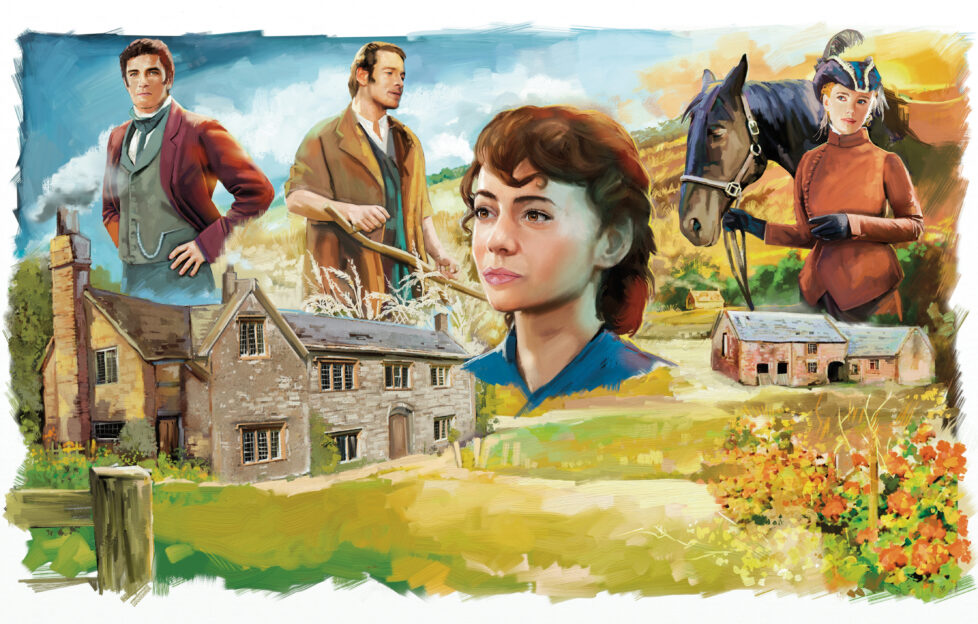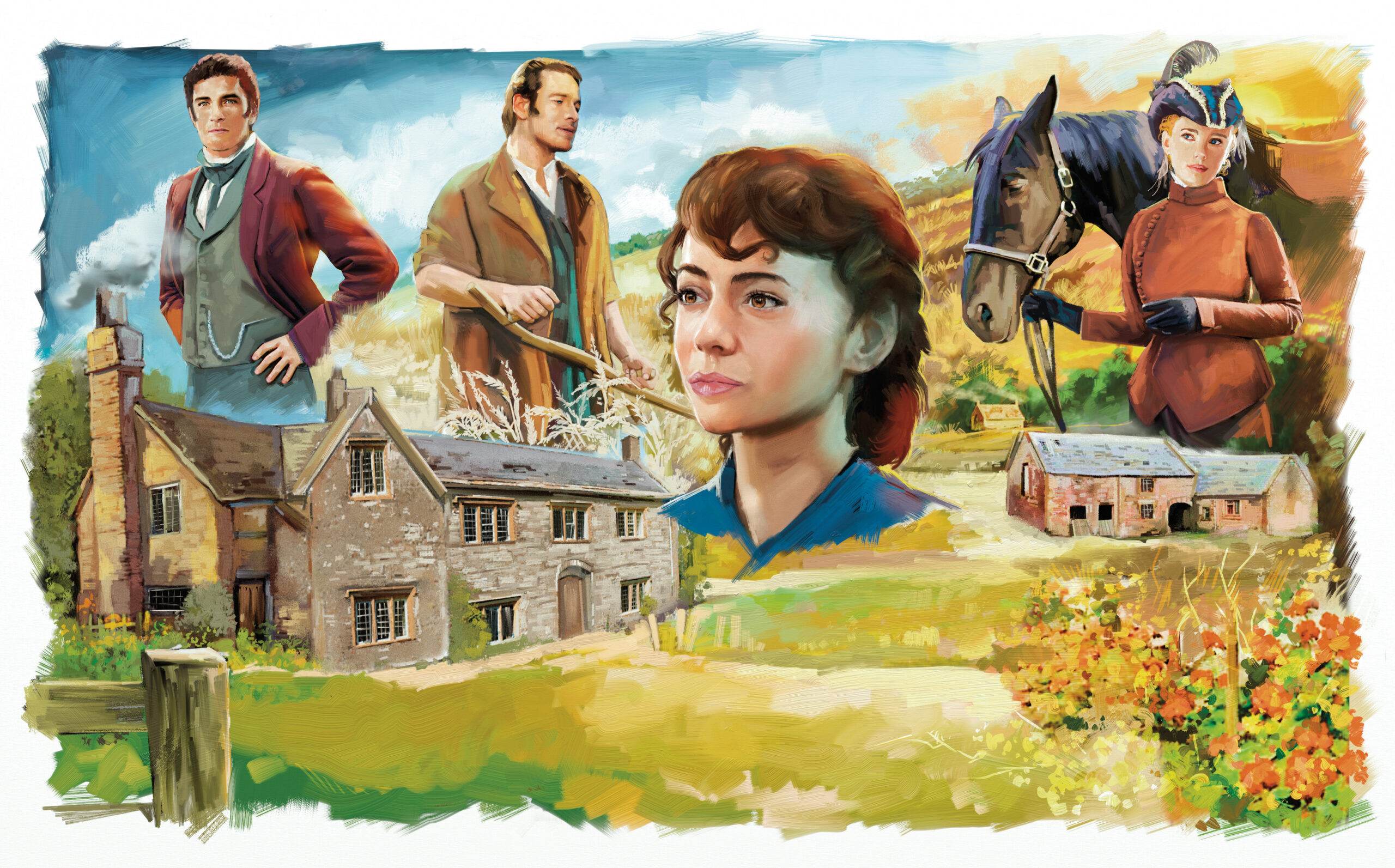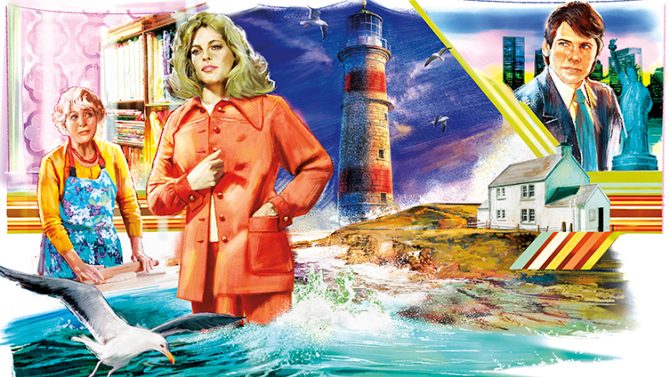About The Hollow Ground – Episode 46

About The Hollow Ground by Pamela Kavanagh
« Previous Post- 1. About The Hollow Ground – Episode 01
- 1. About The Hollow Ground – Episode 46
When the waiting became unbearable, Nan took her anxieties to Upton, where her mama also was suffering the effect of recent happenings.
Over the weeks a closeness had developed between daughter and mother. Bonded now by shared trauma, they were airing their feelings openly rather than tiptoeing round each other.
One dank and dismal day in mid-November, Nan, finding herself close to the end of her tether, took the horse and trap to Upton for a visit.
“How these things drag on,” Candice said as they sat together by a fire in her charmingly furnished parlour.
She poured the tea brought in by the maid and Nan accepted the comforting beverage gratefully.
“It seems an age since the day Mercy came back from market with the dreadful tidings,” Nan replied. “Then again, the hand of officialdom is necessarily slow.
“Last I heard, Tom Dewes and Seb Wilkes were in custody at Chester Jail, pending an inquiry. We shall have to wait for the Quarter Sessions for that.”
“That will be late December,” Candice pointed out. “I know nothing of Wilkes, though I do remember Dewes from when he worked at the farm.
“I always thought him an upstanding and loyal man, but I suppose one can never be sure. What of the wife? Aggie, was it?”
“Aggie Dewes, yes. When Tom was taken she went to stay with her sister at Nantwich. As far as I know she’s still there. Poor woman – what a wretched experience for her.”
“Wretched,” Candice murmured in agreement.
She offered a plate of sweet pastries. Nan took one but made no attempt to eat it. She had lost weight over the past weeks and her mauve gown hung loosely on her.
“Have you seen anything of Daniel?” Candice asked.
“He called yesterday. It troubles me that I feel so little for his company. I can’t bring myself to focus on anything at the moment, and the circumstances make it harder.”
“You cannot hold Daniel responsible for what has happened, my love,” Candice pointed out fairly.
“No. But the connection with Vinewood is there. If the truth be known, I was not sorry when he left.”
Candice made no comment to this, but sipped her tea thoughtfully.
“And Piers Merriman? Has there been any word from him?”
“None. It has been months now. I doubt if we shall see him at Cross Lanes again. My own fault entirely. I misjudged him and I’m paying the price.”
Nan’s voice shook. Only she knew how greatly she regretted not having been more tolerant over Piers’s admission about his past.
“You love him, don’t you?” Candice said quietly.
Nan nodded.
“Yes. Impossible though it seems, I do. It crept up on me unawares. Piers Merriman is twice the man Daniel Harrison is.
“Ah, dear goodness!” Nan said in a rush of emotion. “Why do I get it so wrong? Not only in this, but other matters, too.
“It was Merriman who first brought my attention to the possibility of Papa’s end not being what it seemed. Why did I not take more notice of him?”
A great sadness entered Candice’s face.
“It wouldn’t have altered anything. The reason for your papa’s passing seemed all too credible. Anyone could be forgiven for accepting that a fall from a horse can be fatal.”
“Perhaps,” Nan replied weakly.
Talk moved on to other things.
On the mantelpiece the little ormolu clock struck three and Candice glanced up.
“My, is that the time? Have some more tea, Nan, and try to eat something. Then you must think about getting back.
“The days are drawing in rapidly. I don’t like to think of you driving home in the dark.”
Soon afterwards, with promises to visit again before long, Nan took her leave.
After she had left, Candice sat for a while, gazing into the glow of the fire, her mind busy.
It did not look as if her written plea to Piers Merriman had had the desired effect. If it had, he would surely have put in an appearance at the farm before now.
From what her daughter had said of him, Candice would have expected a response of sorts. Could some unforeseen problem be holding him up?
She found it more acceptable to hold on to this assumption rather than condemn the man outright, thereby running the risk of subjecting her girl to a lifetime of bitter self-recrimination and regret.
None knew better than she how devastating that could be.
“Dearest Henry, I’m so sorry. What a foolish creature I was,” she whispered, with hope in her heart that somewhere, somehow, her feelings would make themselves apparent to the only man she truly had loved.
A man she should have been proud to call husband.














